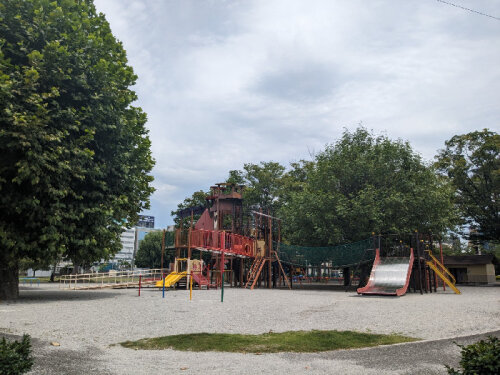Best Agriculture Lawyers in Shizuoka
Share your needs with us, get contacted by law firms.
Free. Takes 2 min.
List of the best lawyers in Shizuoka, Japan
About Agriculture Law in Shizuoka, Japan
Shizuoka Prefecture is a major agricultural region in Japan, known for tea production, fruit orchards, vegetables, and fisheries along its coast. Agriculture in Shizuoka is shaped by small and medium-sized family farms, cooperatives, irrigation networks, and a mix of mountainous and coastal land uses. Legal rules that affect farming here combine national statutes, prefectural ordinances, and municipal practices. These rules regulate land ownership and use, subsidies and support programs, food-safety and pesticide controls, water and irrigation rights, labor and employment, and cooperative activities. Understanding both the national legal framework and local implementation in Shizuoka is essential for anyone operating, investing, inheriting, leasing, or otherwise dealing with agricultural land or businesses in the prefecture.
Why You May Need a Lawyer
Agriculture appears straightforward, but many situations raise legal issues that benefit from professional advice. Typical reasons to consult a lawyer include disputes over farmland ownership or boundaries, difficulty obtaining permission to convert agricultural land to non-agricultural uses, conflicts with tenants or sharecroppers, disagreements with cooperatives or buyers, problems with subsidy eligibility or repayment demands, environmental or pesticide compliance matters, water-rights or irrigation association disputes, workplace issues involving seasonal or foreign workers, inheritance and succession planning for family farms, and urgent dispute resolution such as injunctions to stop demolition or improper land use. A lawyer with experience in agricultural matters can advise on regulatory procedures, represent you before administrative bodies, negotiate contracts, and handle litigation or mediation when disputes cannot be resolved informally.
Local Laws Overview
Agricultural Land Act - The national Agricultural Land Act governs use and transfer of farmland. It restricts sale or conversion of designated agricultural land in order to preserve farmland. Transfers that do not keep land in agricultural use typically require permission from the relevant authorities or notification to the prefectural office or local agricultural committee.
Permissions and notifications - For sale, transfer, lease, or change of use of farmland there are administrative procedures. The prefectural agricultural office and municipal agricultural divisions commonly handle applications and grant permissions based on criteria such as maintenance of farming use, the buyer or lessee's capability to farm, and the public interest.
Local agricultural committees and administration - Local agricultural committees and municipal agricultural sections play a practical role in reviewing applications, issuing guidance, and mediating local disputes. Shizuoka-specific implementation can vary by municipality, so local procedures and expectations matter.
Subsidies and support programs - National and prefectural subsidies for crop production, infrastructure, and business development come with contractual obligations and reporting requirements. Misuse or failure to meet conditions can result in subsidy recovery demands.
Pesticides, food safety, and environment - Use of pesticides, fertilizers, and livestock chemicals is regulated by national rules enforced locally. Environmental laws and prefectural ordinances may impose restrictions to protect water quality, biodiversity, and public health.
Water and irrigation - Local irrigation associations and water user groups often control irrigation rights and maintenance. Disputes about water allocation, repairs, or fees are common in regions with shared irrigation infrastructure.
Labor and immigration - Employment of seasonal workers, trainees, and foreign workers is subject to labor standards, social insurance requirements, and immigration law. Programs such as the Technical Intern Training Program and specified-skilled worker visas have program-specific rules and oversight.
Cooperatives and marketing - Japan Agricultural Cooperatives - JA and other local marketing organizations have internal rules and contractual relationships with members. Conflicts over pricing, delivery, and membership obligations may need legal intervention.
Inheritance and farm succession - Succession planning is legally sensitive. Property transfer, tax implications, and the allocation of farm management responsibilities require careful legal and tax planning to maintain farm continuity.
Frequently Asked Questions
Can I sell my farmland in Shizuoka to a non-farmer?
Not automatically. Farmland designated under the Agricultural Land Act is restricted to preserve agricultural use. Selling to a non-farmer or converting the land to a non-agricultural purpose typically requires permission from the relevant authorities or a change-of-use approval. Local authorities assess whether the sale would negatively affect farming capability and whether there is a plan for continued agricultural use.
How do I obtain permission to build a greenhouse or convert land use?
You usually need to apply to the municipal agricultural division or prefectural office and may need permission under the Agricultural Land Act if the land is designated farmland. The authorities will review the application for compliance with zoning, environmental, and agricultural use policies. Preparing detailed plans and showing how farming will continue or be improved increases the chance of approval.
What rights do I have as a tenant farmer or sharecropper?
Rights depend on the lease or sharecropping contract and on statutory protections. Written contracts that define rent, duration, responsibilities for improvements, and termination conditions are essential. Long-term leases may have stronger protections, but informal arrangements are riskier. A lawyer can review or draft agreements to protect your interests.
How are disputes over water for irrigation resolved?
Many irrigation systems in Shizuoka are managed by local irrigation associations or water user groups. These organizations have rules for allocation, maintenance, and cost-sharing. Disputes are often addressed through the association’s internal procedures, mediation by local authorities, or civil litigation if necessary. Early negotiation and documentation help prevent escalation.
What should I do if I receive a demand to repay a subsidy?
Do not ignore the demand. Check the subsidy contract and any notices to understand the basis for recovery. Gather records showing how funds were used and communicate promptly with the issuing authority. A lawyer can assess whether the demand is lawful, request administrative review, negotiate repayment terms, or represent you in appeals.
How are pesticide and chemical-use violations enforced?
Violations can lead to administrative penalties, orders to cease certain activities, fines, and civil liability if harm occurs. Enforcement is typically by prefectural or municipal authorities, and serious breaches can involve national agencies. Keeping accurate records, following label instructions, and using approved products reduces risk. If accused of a violation, seek legal advice quickly.
Can I get help to mediate a dispute with JA or a buyer?
Yes. Many disputes can be handled through negotiation or mediation. Local agricultural committees, consumer mediation bodies, or private mediators can assist. If mediation fails, a lawyer can bring a civil claim or advise on arbitration where a contract provides for it.
What are key legal issues when hiring foreign seasonal workers?
Employers must comply with immigration law, the conditions of the relevant visa program, and labor and social insurance rules. Proper contracts, timely wage payments, safe working conditions, and accurate record keeping are required. Violations can result in fines, criminal penalties, and loss of ability to hire foreign workers.
How should farm families handle inheritance and succession planning?
Succession planning should address ownership of land, division of assets, tax planning for inheritance taxes, and continuity of farm management. Options include wills, inter vivos transfers, farm household agreements, corporate structures, or long-term leases. Because tax and administrative rules are complex, consult both a lawyer and a tax professional.
What steps can I take quickly if someone is using my land without permission?
Document the trespass with photos, witness statements, and a record of dates. Send a written demand to cease and vacate, and keep a copy. If the trespass continues, you can seek injunctive relief from the courts or a police report if the act is criminal. Contact a lawyer promptly to preserve evidence and obtain emergency measures if needed.
Additional Resources
Shizuoka Prefectural Government - Department or Division of Agriculture and Rural Affairs - for local regulations, subsidy programs, and application procedures.
Municipal agricultural sections - each city, town, and village has an agricultural office for local permits, irrigation association contacts, and land-use inquiries.
Japan Agricultural Cooperatives - JA branches in Shizuoka - for marketing, credit services, and member support.
Ministry of Agriculture, Forestry and Fisheries - for national laws, pesticide regulations, and major subsidy programs.
Shizuoka Bar Association and local legal aid centers - to find lawyers who handle agricultural matters, and for low-cost or free legal consultations if you qualify.
Irrigation and water user associations - for operational rules and dispute resolution regarding irrigation water.
Tax offices and certified tax accountants - for inheritance tax, business tax, and subsidy tax implications.
Next Steps
1. Gather documentation - collect land deeds, lease agreements, subsidy contracts, correspondence, maps, photos, and any notices from authorities. Organized records make consultations efficient and productive.
2. Contact your municipal agricultural office - for quick clarifications about local procedures, permissions, and contacts for irrigation associations or JA branches.
3. Seek an initial legal consultation - choose a lawyer who lists agricultural law, rural land law, or administrative law as practice areas. Ask about experience with cases in Shizuoka, fee structure, and possible timelines.
4. Consider ADR and mediation - many agricultural disputes are resolved more quickly and affordably through mediation or administrative review. Discuss these options with your lawyer early on.
5. Take urgent protective steps if needed - if there is an immediate threat to your land or business rights, request that your lawyer apply for preservation orders or emergency injunctions to prevent irreversible harm.
6. Plan for the future - work with legal and tax advisors to create clear leases, succession plans, compliance checklists for subsidies and pesticide use, and employment contracts for workers. Proactive legal planning reduces the chance of disputes.
When in doubt, consult both local agricultural officials and a qualified lawyer familiar with Shizuoka practice. Local knowledge of how laws are applied on the ground is often as important as knowing the statutes themselves.
Lawzana helps you find the best lawyers and law firms in Shizuoka through a curated and pre-screened list of qualified legal professionals. Our platform offers rankings and detailed profiles of attorneys and law firms, allowing you to compare based on practice areas, including Agriculture, experience, and client feedback.
Each profile includes a description of the firm's areas of practice, client reviews, team members and partners, year of establishment, spoken languages, office locations, contact information, social media presence, and any published articles or resources. Most firms on our platform speak English and are experienced in both local and international legal matters.
Get a quote from top-rated law firms in Shizuoka, Japan — quickly, securely, and without unnecessary hassle.
Disclaimer:
The information provided on this page is for general informational purposes only and does not constitute legal advice. While we strive to ensure the accuracy and relevance of the content, legal information may change over time, and interpretations of the law can vary. You should always consult with a qualified legal professional for advice specific to your situation.
We disclaim all liability for actions taken or not taken based on the content of this page. If you believe any information is incorrect or outdated, please contact us, and we will review and update it where appropriate.









